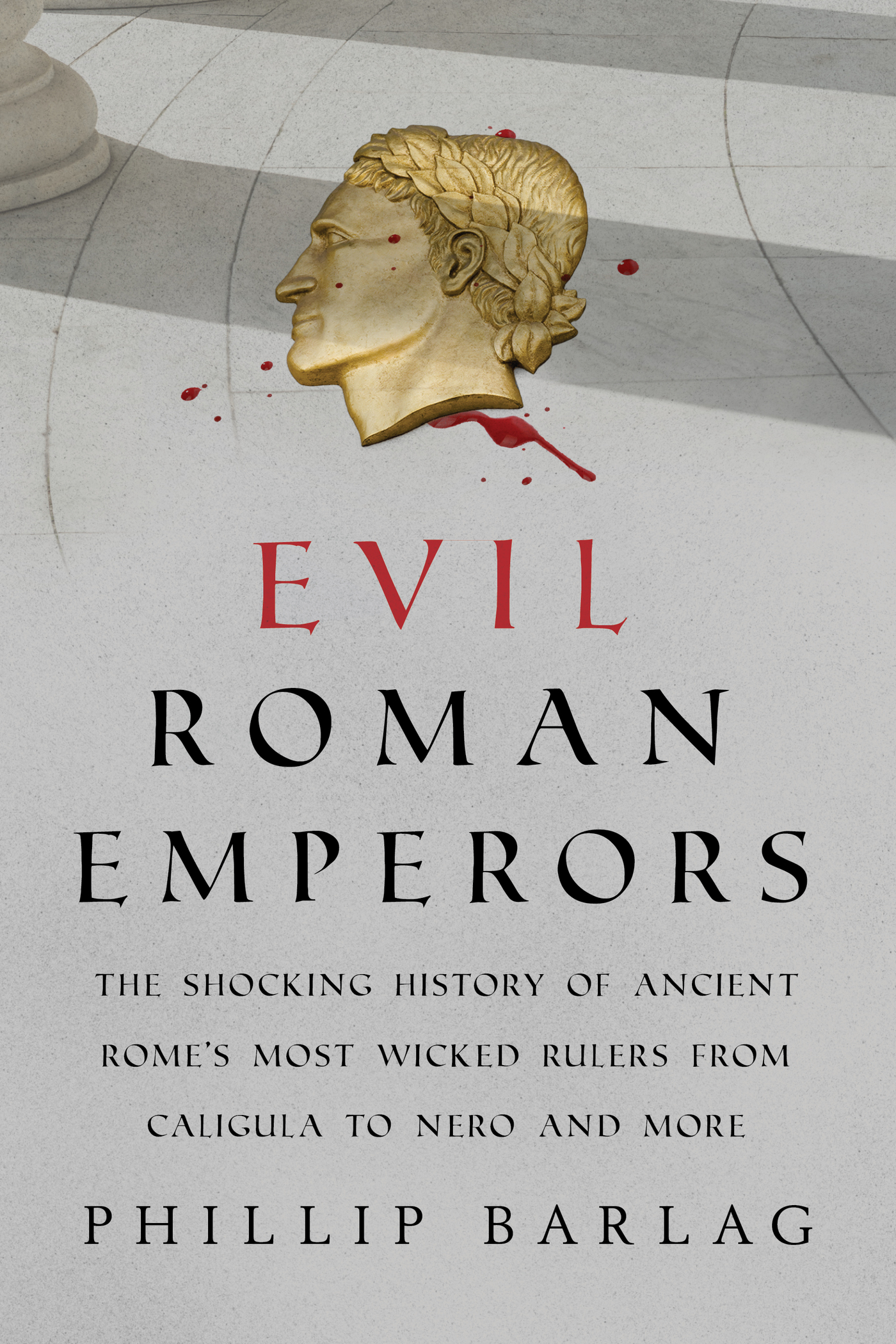Evil Roman Emperors
The Shocking History of
Ancient Romes Most Wicked Rulers
from Caligula to Nero and More
Phillip Barlag


An imprint of The Rowman & Littlefield Publishing Group, Inc.
4501 Forbes Boulevard, Suite 200
Lanham, Maryland 20706
www.rowman.com
Distributed by NATIONAL BOOK NETWORK
Copyright 2021 by The Rowman & Littlefield Publishing Group, Inc.
All rights reserved. No part of this book may be reproduced in any form or by any electronic or mechanical means, including information storage and retrieval systems, without written permission from the publisher, except by a reviewer who may quote passages in a review.
British Library Cataloguing in Publication Information Available
Library of Congress Cataloging-in-Publication Data
Name: Barlag, Phillip, author.
Title: Evil Roman emperors : the shocking history of ancient Romes most wicked rulers from Caligula to Nero and more / Phillip Barlag.
Description: Lanham, MD : Prometheus, [2021] | Includes bibliographical references and index. | Summary: "Evil Roman Emperors puts the worst of Romes rulers in one place and offers a review of their lives and a historical context for what made them into what they became. It concludes by ranking them, counting down to the worst ruler in Romes long historyProvided by publisher.
Identifiers: LCCN 2020043435 (print) | LCCN 2020043436 (ebook) | ISBN 9781633886902 (paperback) | ISBN 9781633886919 (ebook)
Subjects: LCSH: EmperorsRomeBiography. | RomeKings and rulersBiography. | RomeHistoryEmpire, 30 B.C.476 A.D.
Classification: LCC DG274 .B368 2021 (print) | LCC DG274 (ebook) | DDC 937/.060922dc23
LC record available at https://lccn.loc.gov/2020043435
LC ebook record available at https://lccn.loc.gov/2020043436
 TM The paper used in this publication meets the minimum requirements of American National Standard for Information Sciences Permanence of Paper for Printed Library Materials, ANSI/NISO Z39.48-1992.
TM The paper used in this publication meets the minimum requirements of American National Standard for Information Sciences Permanence of Paper for Printed Library Materials, ANSI/NISO Z39.48-1992.
For Erin
Acknowledgments
I have to begin with my family. Erin, I love and appreciate you so much. I couldnt do this without your support. Ethan, Everett, and Harper, you each inspire me individually and as a trio. You are terrific human beings.
Mom and Dad, you are always behind me, and I never can adequately express my gratitude for everything.
Pat, you cheer me on like none other. Thank you for your encouragement.
Amy, Charles, and Roxanne, you each, and as a family, enrich my life.
Ryan Masters, I am running out of ways to thank you for all of your help, guidance, encouragement, and mentorship over the years. I am in awe of your brilliance and cherish our friendship.
John Willig, thank you for being in my corner and guiding my way through this strange industry.
Jake Bonar, thank you for getting behind the vision of this book. It certainly wouldnt have happened without you!
Finally, one of the reasons to write another book is to correct mistakes made in the previous one. One of the people to whom I am indebted is my friend Marisa Levi. My book The History of Rome in 12 Buildings would not have happened without you.
Introduction
Absolute power corrupts absolutely. As conclusive evidence of this unfortunate truth, I present to you the Romans who ruled during the height of the Roman Empire. This singular collection of deranged sadists and ignorant egoists terrorized the people of Rome in ways that boggle modern sensibilities.
But this is just the beginning, and the title of the book is only half the story. Rome wasnt built in a day, and neither was its empire. From its very foundation, the history of Rome is replete with people and stories that shock and horrify. The story of Rome begins and ends with wicked rulers. The dark chasm at the heart of Roman history is irresistible, tempting us to peer over the precipice. After all, a careful study of the lives and careers of totalitarians can teach us a lot about the human condition. These monstrous men reflect the darkest parts of our own psyche, and if they invite comparison, I hope you share little with them. This rogues gallery of rulers consists of contenders for worlds worst human being.
So which ruler is truly the worst? An internet search for worst rulers of Rome results in an exclusive list of emperors. Makes sense, but Romes history is long and complicated. Not all who ruled Romeand certainly not all of its worst rulerswere emperors. Although these rulers make up the lists majority, a complete and accurate view of Roman history and the nature of power in the ancient world requires a more expansive net. Narrowing our consideration to emperors would exclude some delightfully awful people.
Yet before we continue, an editorial note: The history of ancient Rome comes from limited and often biased sources. A lot of this stuff happened a few thousand years ago, and a lot of it likely didnt happen at all. In the absence of a confirmed historical record, Roman historians and scholars codified legends and myths into history. This mythology-turned-history subsumed the Roman psyche. What actually happened mattered less than what people thought happened. No matter how outsized, unlikely, or just plain weird some of the founding mythology of Rome came to be, it was the history around which the Roman identity was formed.
Even when contemporary historians were working at or near the time of events, they often skewed their work to align with a personal or political agenda. For example, the Roman historian Tacitus was a senator who lived and worked during the reign of Emperor Domitian. Domitian violently persecuted the senatorial class. Consequently, Tacituss description of Domitian glosses over the many positive aspects of the mans life and rule, instead emphasizing their substantial shortcomings. We simultaneously must believe historians accounts and take them with a grain of salt. To qualify every historical detail would make this book long and tedious. As a result, some of the history is downright questionable. Its not just skewed; its quite possibly fabricated.
Particularly troublesome is the Historia Augusta, an anonymous work of uncertain date and dubious reliability. It is likely that much of this work is fabricated. However, for some periods, it is the only ancient Latin history that exists. So reliable or not, its necessary. Sorry in advance, Elagabalus. The stories about you in the Historia Augusta are just too good to pass up. Given the challenges with the bias or reliability of sources, some events will be presented as straightforward historical fact despite the fact that the truth is far thornier or subject to multiple interpretations. Consider it the cost of a conversation about ancient Rome.
Second, many think that the Roman Empire is part and parcel of Rome. In reality, it took centuries to build the Roman Empire. Consequently, historians generally break up Romes history into four phases:
the kingdom, starting with Romulus and the other mythical or semi-mythical kings of Rome;


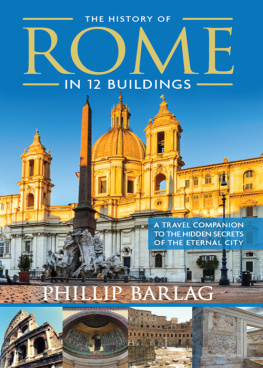
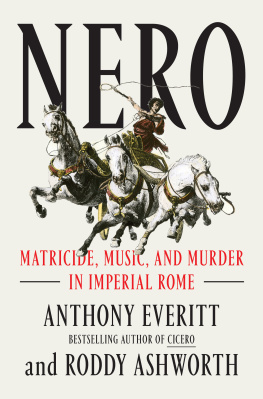

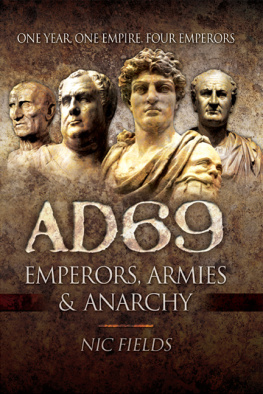
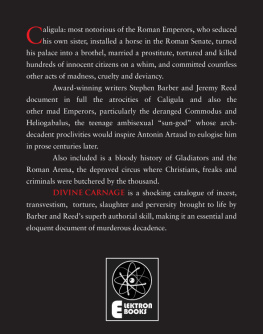
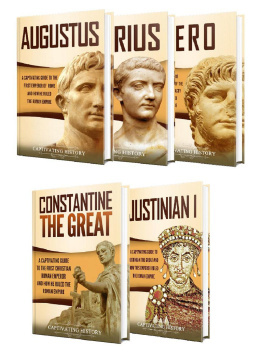
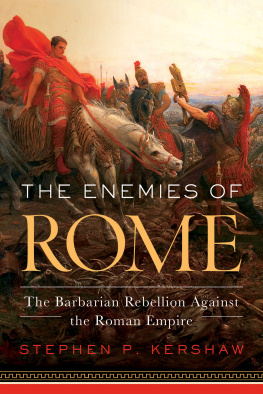
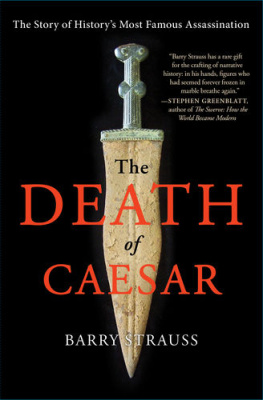
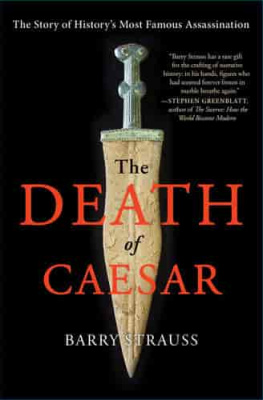
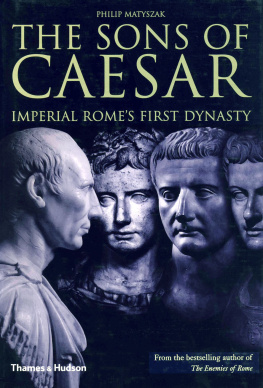
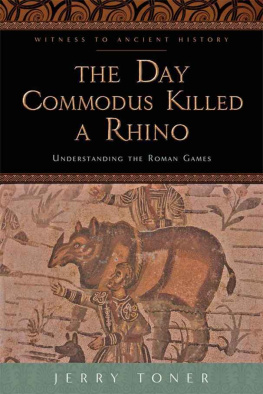
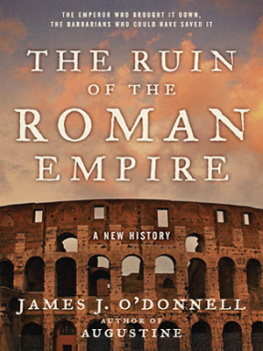
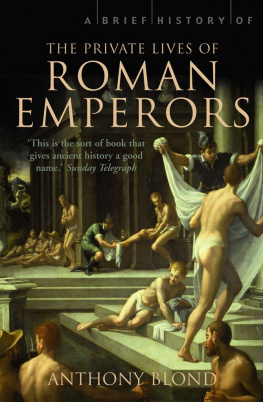


 TM The paper used in this publication meets the minimum requirements of American National Standard for Information Sciences Permanence of Paper for Printed Library Materials, ANSI/NISO Z39.48-1992.
TM The paper used in this publication meets the minimum requirements of American National Standard for Information Sciences Permanence of Paper for Printed Library Materials, ANSI/NISO Z39.48-1992.